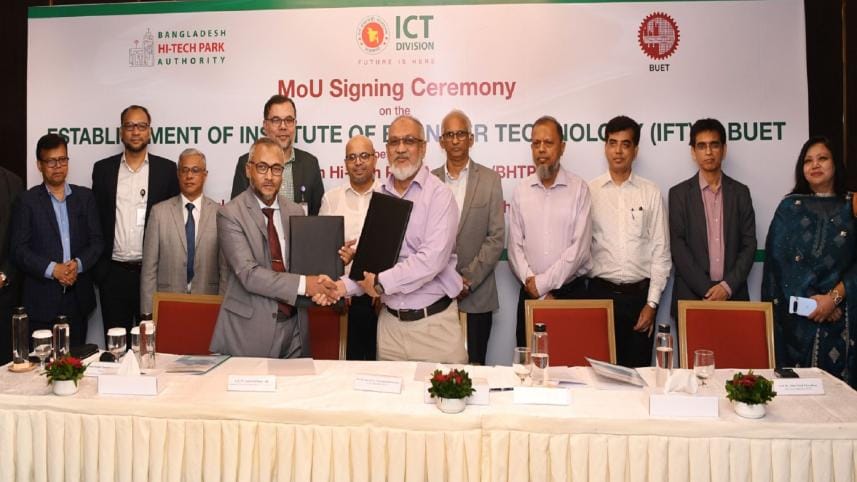Frontier technology institute to be set up at Buet

The Bangladesh Hi-Tech Park Authority has signed a memorandum of understanding (MoU) with and the Bangladesh University of Engineering and Technology (Buet) to establish the Institute of Frontier Technology (IFT) on the Buet campus.
The agreement is part of the project, titled "Bangladesh Institute of Frontier Technology Preliminary Infrastructure Development (1st Revision)".
Abu Borhan Mohammad Badruzzaman, vice-chancellor of Buet, and AKM Amirul Islam, managing director of the Bangladesh Hi-Tech Park Authority, signed the MoU at the InterContinental Dhaka in the capital today.
Speaking as chief guest, Faiz Ahmad Taiyeb, special assistant to the chief adviser for telecom and ICT, said the institute seeks to bridge the long-standing gap between industry and academia.
"Our experience shows that both academia and industry suffer from significant research gaps and lag behind international standards. The solution lies in the Institute of Frontier Technology," he said.
Taiyeb explained that relocating the project from a remote char area to Buet was essential, as mobilising teachers, students, and resources in such locations would have been nearly impossible.
Highlighting Buet's legacy, he added: "We believe that under Buet's supervision, the IFT will succeed in resource mobilisation and in bridging the skills gap."
The institute will not require new land acquisition or additional architectural design, making it cost-efficient.
Taiyeb also announced a four-year roadmap: two years to complete physical infrastructure and a further two years to achieve academic excellence.
Courses will be designed in line with industry needs, covering artificial intelligence (AI), machine learning, robotics, blockchain, biotechnology, nanotechnology, cybersecurity, and related fields.
Vice-Chancellor Badruzzaman welcomed the initiative, describing it as both timely and logical.



 For all latest news, follow The Daily Star's Google News channel.
For all latest news, follow The Daily Star's Google News channel.
Comments